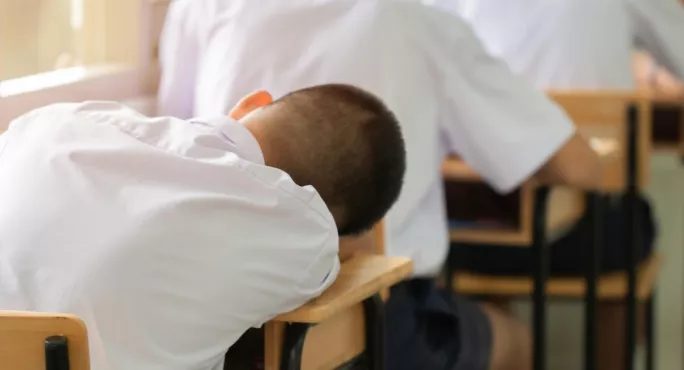
- Home
- Teaching & Learning
- Secondary
- GCSEs 2021: How exam boards will help teachers’ grading
GCSEs 2021: How exam boards will help teachers’ grading

The use of external tasks set by exam boards to determine this year’s GCSE and A-level grading has been contentious, with school leaders previously raising concerns that students must not sit mandatory “mini exams”.
Under the final plans for this year’s grading now released by Ofqual and the Department for Education, external tasks set by exam boards will indeed be optional for teachers to use, with exam boards issuing guidelines to schools about their use before the Easter holidays.
But what else have we learned about them?
GCSEs 2021: Teacher assessed grades get green light
Ofqual’s plans for exams: What FE needs to know
GCSEs 2021: ‘Excessive grade inflation’ warning
Exams 2021: Teachers relieved of appeals burden
1. They will - mostly - be based on past paper questions
The materials from exam boards will be a book of potential questions teachers could use, mainly taken from past exam papers.
This has previously raised concerns that students could game the system this year through rote learning exemplar answers to past questions.
The GCSE and A-level past paper questions will come with the marking criteria and exemplar answers used at the time from when they were sat in exam conditions, so that teachers can feel more confident in assigning a grade to students’ work.
2. But there will be some new questions, too
The book of potential questions for each subject will include some unseen questions, so if teachers wanted to ensure their students sat questions they had never seen before, they could only select these for their classes.
3. There will be exemplar answers for every grade, and additional grade descriptors
The exam board materials will include exemplar model answers for every grade, as well as additional grade descriptors in the marking criteria to help teachers ascertain which grade is most appropriate for a student’s work.
4. They are optional for teachers - but less so for students
Teachers can choose whether to use the exam board materials or whether to base their judgements instead on classwork, coursework and other work from students. And the external assessments will form only a part of their judgement of a student’s overall standard.
But students themselves may not be able to opt out of the tasks if their teacher decides to set them.
The DfE said that if an external task is used for a class, the whole class or cohort should sit the assessment, and students should not be able to opt out individually from sitting the task.
5. They do not need to be sat in exam conditions
Teachers will have flexibility over how the tasks are used, and there does not need to be a time limit in which students complete the tasks. The teacher could decide to use the task as a class test, but the tasks could equally be sat over a number of days, and there is no need for students to complete these under exam conditions in exam halls.
6. They can be used by teachers to plug ‘evidence gaps’
If teachers have taught a topic they feel they have not had a chance to assess students on, they could use the exam board materials to plug gaps in their evidence for students, or as a way of validating the grade they want to assign a student.
7. Teachers can’t tell students what to write
If teachers gave answers to students on the tasks, or told them what to write, this would be an example of malpractice. As part of their quality assurance process, schools will need to sign a declaration that exam boards’ requirements have been met.
8. The materials will be organised into topics
The exam board materials will be given to teachers in “chunked” categories or topics, so that teachers can choose tasks based on areas they know they have covered with their classes. Students will not be assessed on any materials they have not been taught.
9. The range of evidence used may depend on the grade the student is aiming for
The mini-assessments should not be the sole basis for any grading judgement of students - teachers are free to use classwork, coursework and homework, as well as performances or products made by students in practical subjects, as part of their overall assessment for a grade.
But the range of evidence used may also depend on the grade a student is aiming for, the DfE and Ofqual said.
10. They are not ‘mini exams’
The external tasks are not supposed to be seen as comparable to “mini exams” or exams as normal in any way. Teachers can use them for a test, as an essay task, or not at all - but this will be at their discretion.
You need a Tes subscription to read this article
Subscribe now to read this article and get other subscriber-only content:
- Unlimited access to all Tes magazine content
- Exclusive subscriber-only stories
- Award-winning email newsletters
- Unlimited access to all Tes magazine content
- Exclusive subscriber-only stories
- Award-winning email newsletters
You need a subscription to read this article
Subscribe now to read this article and get other subscriber-only content, including:
- Unlimited access to all Tes magazine content
- Exclusive subscriber-only stories
- Award-winning email newsletters
- Unlimited access to all Tes magazine content
- Exclusive subscriber-only stories
- Award-winning email newsletters
topics in this article



